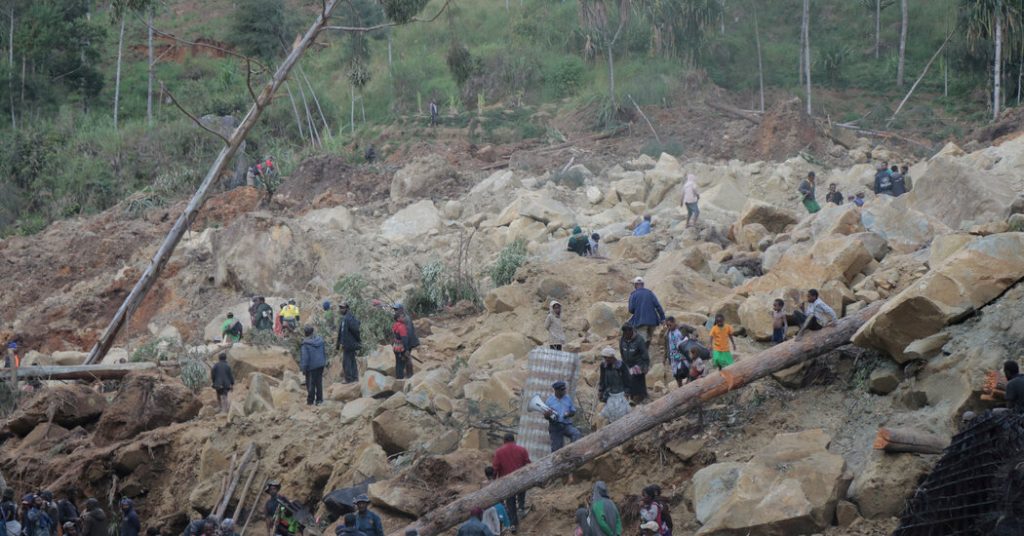Over the weekend, an agency estimated that over 250 houses had been abandoned due to fear of additional slippage, with approximately 1,250 people displaced. The numbers could not be independently verified. Getting aid to survivors has been difficult, with an aid convoy delivering tarps and water but no food. On Sunday, the local government provided food and water for around 600 people, but heavy equipment had not yet arrived, leaving residents to search for bodies on unstable debris using small tools. Tribal feuds have also increased safety risks post-disaster, with tensions rising as giant boulders fell from one tribe’s land onto another tribe’s residential town.
The region had already been experiencing tribal clashes before the disaster, leading to people fleeing surrounding villages and congregating in the community impacted by the landslide. In September of last year, Enga Province was under a government lockdown and curfew with no flights in or out. As the search for survivors and victims continues, anger and violence have escalated. On Saturday morning, a quarrel between two clans resulted in deaths and the burning down of numerous houses. The chief of mission at the International Organization for Migration’s office in Papua New Guinea noted that the threat of violence is hindering aid delivery efforts.
The challenges of delivering aid in the aftermath of the disaster have been exacerbated by ongoing tribal conflicts and tensions. People are forced to navigate perilous conditions to search for bodies and resources, as heavy equipment has not yet arrived in the area. The impact of the landslides has led to displacement and fear among residents, with abandoned homes and unstable debris posing further risks. The region had already been struggling with tribal clashes before the disaster, which have been intensified by the recent events, contributing to a volatile and unsafe environment for both survivors and aid workers.
The efforts to reach survivors and provide essential resources like food and water have been hampered by the difficult terrain and ongoing tribal tensions. Despite some progress in delivering aid to a small number of people, the lack of heavy equipment and the threat of violence have made the situation more challenging. The need for assistance is urgent, but the obstacles in accessing the affected areas and delivering aid safely continue to slow down the relief efforts. The community organizer in Enga Province highlighted the potential for further tensions and conflicts to arise as a result of the disaster, indicating a fragile and volatile situation in the region.
As the search for the missing and the displaced residents continues, the risks and challenges facing both survivors and aid workers remain high. The combination of environmental hazards, tribal feuds, and limited resources complicates the relief operations and increases the vulnerability of affected communities. The violence and destruction that have already occurred in the aftermath of the disaster underscore the urgent need for coordinated and effective response efforts. The situation in the region is complex and fragile, requiring comprehensive and immediate action to address the humanitarian needs of those impacted by the landslides and the resulting displacement and destruction.


